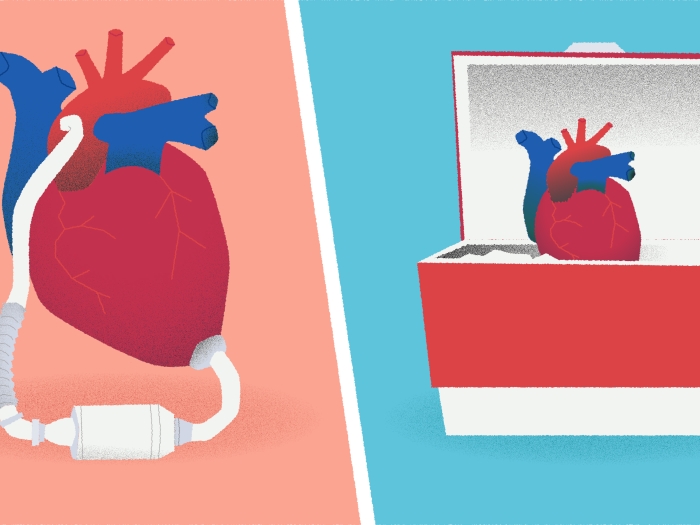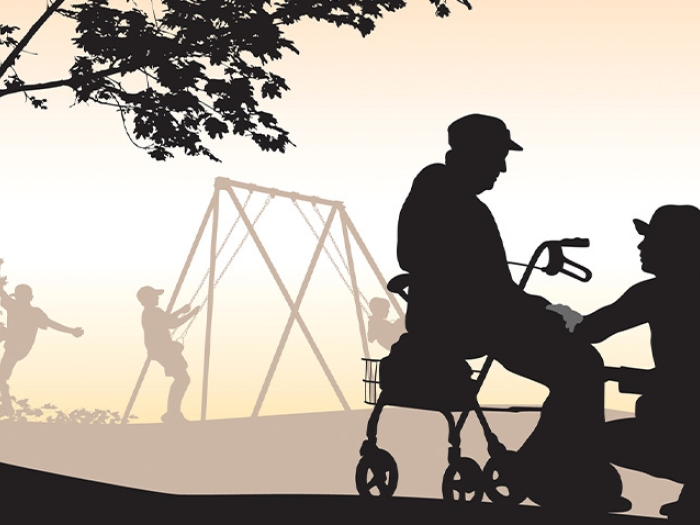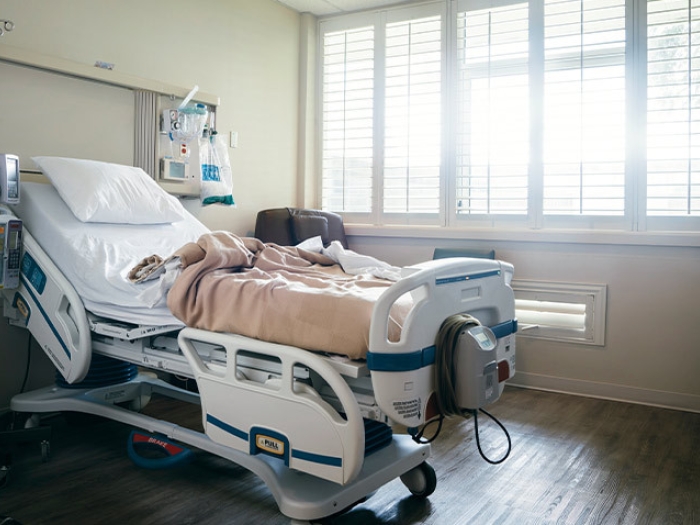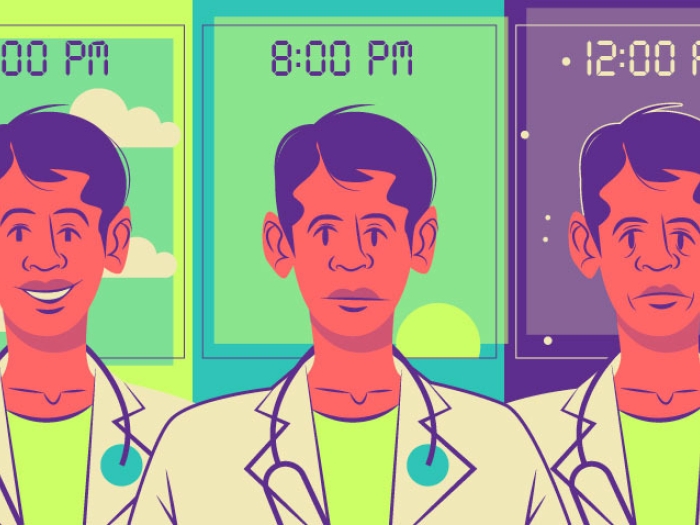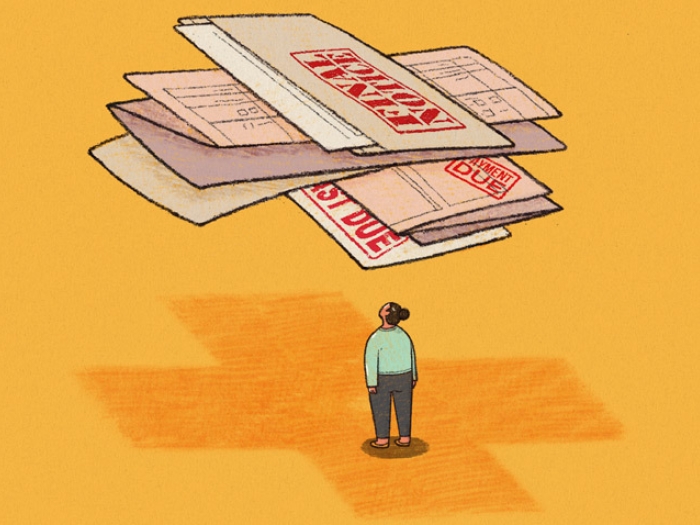Nearly all Michigan hospitals saw a drop in uninsured patients after Medicaid expansion under the Affordable Care Act, a finding that may hold lessons for states that haven’t launched similar programs.
11:00 AM
Author |
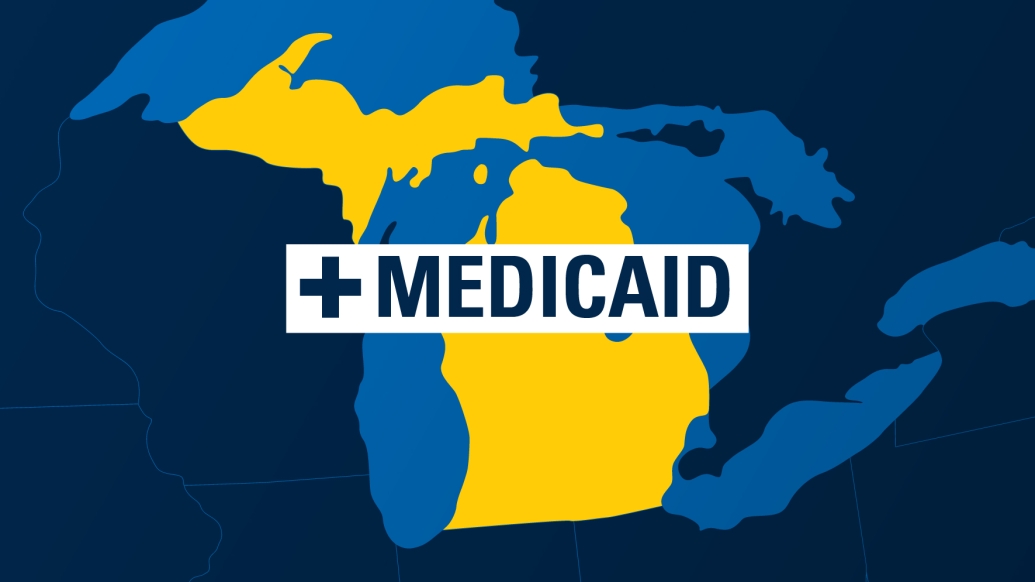
It happened fast. It happened in nearly every hospital in Michigan. And it didn't come with dreaded side effects.
"It" — Medicaid expansion under the Affordable Care Act — instead helped relieve hospitals' burden of caring for patients who have little or no means to pay, according to a new analysis of hospitals across Michigan reported in JAMA: Journal of the American Medical Association.
SEE ALSO: Does a Hospital's 'Safety Culture' Reduce Risky Infections?
Within three months of the launch of the Healthy Michigan Plan in April 2014, insurance coverage across the state changed. Hundreds of thousands of low-income Michiganders between the ages of 18 and 64 enrolled in Healthy Michigan Plan Medicaid coverage. At Michigan's hospitals, the study finds, the proportion of patients who lacked insurance dropped nearly 4 percentage points, and the proportion covered by Medicaid rose more than 6 percentage points.
This study was the first to confirm this directly and at a statewide level, a conclusion past studies had predicted or implied. The researchers, a team from the University of Michigan Institute for Healthcare Policy and Innovation, were also the first to examine whether all hospitals across a Medicaid expansion state experienced the shift in insurance coverage for their patients.
"This is evidence that broader availability of insurance coverage for residents of Michigan is translating into coverage at the time when people are most in need of it — namely, when they are sick enough to be in the hospital," says Matthew M. Davis, M.D., MAPP, a University of Michigan professor, the lead author of the study and a member of the U-M Institute for Healthcare Policy and Innovation.
"The Healthy Michigan Plan appears to be shifting the balance for almost all Michigan hospitals, to have a higher proportion of patients who have insurance coverage."
When uninsured individuals are so ill they need to be hospitalized, it poses financial risks to them as well as to the hospitals that they're admitted to. Medicaid expansion in 31 states and the District of Columbia has reduced that risk.Matthew M. Davis, M.D., MAPP
Detailed findings
In all, 94 percent of hospitals treated fewer uninsured patients, and 88 percent had more Medicaid-covered patients, in the last nine months of 2014 compared with the same period in each of the two years before expansion.
But even as more patients had coverage to pay for their care, hospitals didn't see a sudden rise in the total number of non-elderly adult patients, the study finds.
In fact, the total number of hospitalizations in the year after the expansion was slightly lower than the average for the two years before expansion. Some had expressed worries about newly covered Michiganders flooding hospitals with pent-up demand for advanced care.
The study's data are from the Michigan Health and Hospital Association's Michigan Inpatient Database, which tracks information on hospital stays, no matter the insurance status of the patient.
The data do not indicate whether Medicaid-covered hospital patients had traditional or Healthy Michigan Plan coverage, nor whether their condition was serious enough that it might have caused them to seek hospital-level care even if they didn't have insurance. But Davis notes that hospitals tend to have similar thresholds for admitting patients based on their condition.
The study also did not determine if hospitals experienced a dip in uncompensated care, the costs of which hospitals have to absorb when patients lack insurance. However, other research has shown that hospitals with fewer uninsured patients have lower uncompensated care costs.
Nineteen states have not expanded their Medicaid programs under the ACA. Findings from this study may add further information to debates in their state capitals.
Larger evaluation under way
Davis and the study's senior author, IHPI director John Z. Ayanian, M.D., MPP, are also involved in a larger state-funded effort to evaluate the impact of Medicaid expansion in Michigan. Further work by other IHPI researchers will probe the impact of Medicaid expansion on uncompensated care costs absorbed by Michigan hospitals.
The next evaluation will also look at what coverage under the Healthy Michigan Plan means for the financial health of individuals, not just hospitals. Often, hospitals will attempt to bill uninsured patients for some or all of the cost of their care and set up payment plans or other debt arrangements to try to recoup some of the cost.
"When uninsured individuals are so ill they need to be hospitalized, it poses financial risks to them as well as to the hospitals that they're admitted to," says Davis. "Medicaid expansion in 31 states and the District of Columbia has reduced that risk. Meanwhile, uninsured individuals in states that haven't expanded the program continue to face that risk — as do the hospitals there."
IHPI members are also looking at the effect of expansion on the mix of patients seen in outpatient clinics and emergency departments around the state.
U-M researchers recently published data from the first year after expansion, showing that access to care went up and wait times for initial primary care appointments around the state did not increase for Medicaid patients, despite requirements under the plan that enrollees seek a primary care appointment soon after coverage.

Explore a variety of healthcare news & stories by visiting the Health Lab home page for more articles.

Department of Communication at Michigan Medicine
Want top health & research news weekly? Sign up for Health Lab’s newsletters today!
